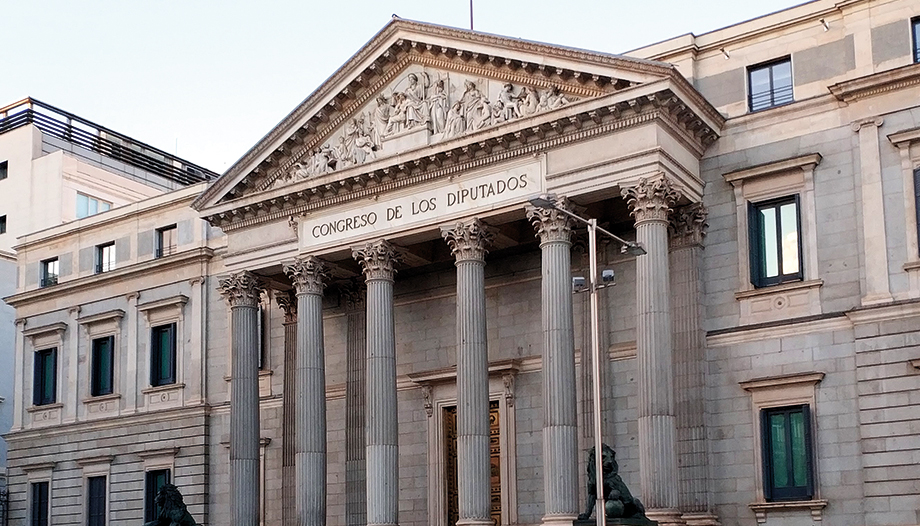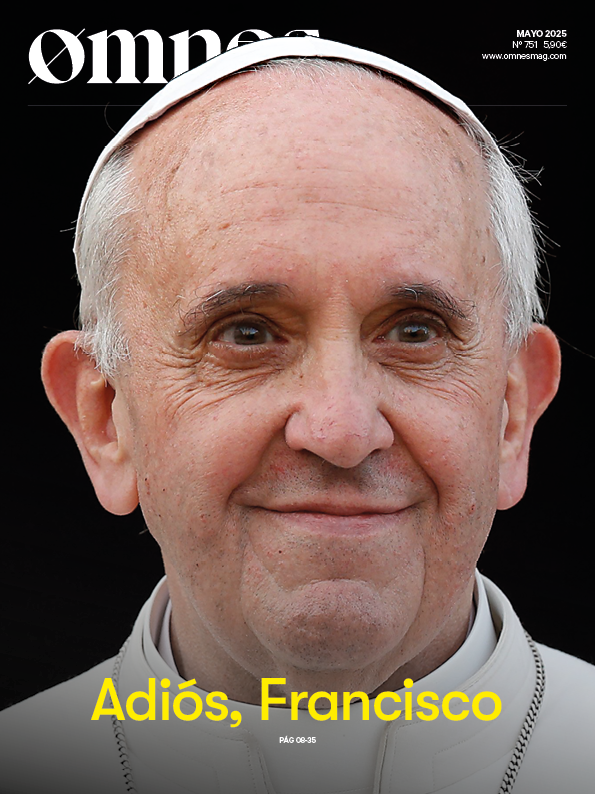The law regulating euthanasia, approved by the current parliamentary majority a few months ago, which modifies Organic Law 10/1995, of November 23, 1995, of the Penal Code, with the aim of decriminalizing all euthanasic behavior in the cases and conditions established by the new law, came into force on June 25. Likewise, the Ministry of Health and the autonomous communities approved the Manual of Good Practices on Euthanasia at the Interterritorial Council of the National Health System.
The recently approved regulation legalizes, for the first time, active euthanasia in Spain, that which is the direct consequence of the action of a third person. It thus becomes the seventh country in the world to do so, after Holland, Belgium, Luxembourg, Canada, Colombia (through the Constitutional Court), New Zealand, and some states of Australia.
The new law introduces the "aid in dying benefit"This can be produced in two different ways: either through the direct administration of a substance to the patient by a health professional, or through the prescription or supply of a substance, so that the patient can self-administer it to cause his or her own death, which is a kind of assisted suicide, although the regulation does not mention it in these terms.
On this issue, Omnes was able to speak with Federico de Montalvo Jaaskelainen, professor of law at Comillas Icade and president of the Spanish Bioethics Committee, an advisory body to the government's Ministries of Health and Science. A interview by Rafael Miner and which can be read in its entirety on our website www.omnesmag.com.
In that conversation, de Montalvo points out that there is no right to die based on dignity, but there is a right not to suffer. That what would have been congruent would have been a law on the end of life, where this right not to suffer, which derives from article 15 of the Spanish Constitution when it states that "everyone has the right to life and to physical and moral integrity, without under any circumstances being subjected to torture or to inhuman or degrading treatment or punishment".but that the most extreme alternative of the end of life has been chosen. Medicine does not respond to the criteria that society wants at any given moment, as happened in the national-socialist and communist regimes, but has to combine the interests of society and the values that it anthropologically and historically defends.
"Everyone has the right to life and to physical and moral integrity, without, in any case, being subjected to torture or to inhuman or degrading punishment or treatment."
Article 15 of the Spanish Constitution
Likewise, the professor believes that the solution to the end of life involves alternatives to euthanasia: palliative care or any form of sedation. He also defends institutional conscientious objection, and argues for it.
There is no right to die
One issue highlighted by the president of the Spanish Bioethics Committee and which serves as a premise for us to raise the issue is that in Spain the euthanasia law was going to be processed by means of a bill, which would mean that it could be approved without the participation of any consultative body, such as the General Council of the Judiciary, the Public Prosecutor's Council, the Council of State.... And not even the Bioethics Committee, when all over Europe, when a law has been considered, or at least the debate on euthanasia has been considered, there is a report from the National Bioethics Committee. There is one in Portugal, in Italy, in the United Kingdom, in France, in Sweden, in Austria, in Germany...
It is mainly for this reason that the Committee drew up a report on the parliamentary procedure for the regulation of euthanasia. A report that could be summarized in three ideas: firstly, the Committee states in this report that there is no right to die. It is a contradiction in itself. And, in fact, "the rationale on which the law has been based is contradictory."says de Montalvo. Contradictory, because it is based on dignity, and then limited to some people - as if only the chronic and terminal ones were dignified. "If legislation is based on a right to die in dignity, it must be recognized for all individuals, because we are all dignified. Therefore, it was a contradiction in itself. That is why we said that there is no right to die based on dignity. Because it would mean that any citizen can ask the State to end his or her life. In this way, the State loses its essential function of guaranteeing life and becomes the executor of the right to die.", he adds.
"There is no right to die based on dignity. Because it would mean that any citizen can ask the state to end his or her life."
Federico de Montalvo JaaskelainenPresident of the Spanish Bioethics Committee
Secondly, the Committee raised in the report an existing error in the processing of the law. Because it was based on a presumed freedom, when in reality the person requesting euthanasia is not really asking to die. The patient assumes death as the only way to end his or her suffering. What the person really wants is not to suffer, to make the suffering he or she is undergoing pass. And to resolve the right not to suffer in Spain, the full development of alternatives is still lacking.
Finally, this report suggests that, instead of a legal solution, which is what the law proposes, medical solutions should be explored. Medical solutions also in chronicity, that is to say, also in situations of chronic, non-terminal patients, where there is the possibility of palliative sedation.
Pablo Requena, professor of Moral Theology and Bioethics and Vatican delegate to the World Medical Association, assures that euthanasia should not be part of medicine precisely because it goes against its purpose, methods and practice. "It would be a way of forcing the figure of the physician back to the time of pre-scientific medicine, when the physician could cure the disease or cause death.".
A fundamental right
This legislative situation presents a particular and not very optimistic situation in this regard. "It is true that euthanasia"de Montalvo assured Omnes, "is the extreme or very exceptional measure. Even for those in favor of it. What does not seem very congruent is to pass a law on that measure. The euthanasia law is not an end-of-life law, it is a euthanasia-only law. It does not address the end of life, it addresses the most extreme alternative at the end of life.".
In this context, therefore, a fundamental right comes into play: conscientious objection. It is a right that is not in the hands of the legislator. What is in their hands is to decide how it is exercised. The new law recognizes it in article 16, stating that "health professionals directly involved in the provision of aid in dying may exercise their right to conscientious objection.".
In general, conscientious objection is understood as the attitude of a person who refuses to obey an order from an authority or a legal mandate, invoking the existence, in his or her inner self, of a contradiction between moral duty and legal duty, due to a rule that prevents him or her from assuming the prescribed behavior. Along these lines, Rafael Navarro-Valls, professor of law and vice-president of the Royal Academy of Jurisprudence and Legislation of Spain, points out that "the law of the law is not a legal duty.conscientious objection is an exercise in health and democratic maturity".
Conscientious objection, therefore, pursues the exception of a certain legal duty for the objector, because the fulfillment of the same conflicts with his own conscience. It cannot be affirmed that it is directed neither against the normative set nor against certain legal institutions, which would result in other different typifications such as resistance or civil disobedience. It is, therefore, an active or omissive behavior in the face of the obligatory nature of the norm for the objector himself.
Conscientious objection is particularly noteworthy and current when it refers to the medical field, since it is understood as the refusal of the health professional to perform, for ethical and religious reasons, certain acts that are ordered or tolerated by the authority; and such a position expresses an attitude of great ethical dignity when the reasons given by the physician are serious, sincere and constant, and refer to serious and fundamental issues, as stated in article 18 of the European Medical Ethics Guide, and in article 32 of the Spanish Code of Medical Ethics and Deontology: "Recognition of physicians' conscientious objection is an essential prerequisite for guaranteeing the freedom and independence of their professional practice.".
De Montalvo strongly defends it, and also defends the conscientious objection of institutions or organizations as a whole. In the same conversation with Omnes he affirms that "Conscientious objection is a guarantee, an expression of religious freedom, and the Constitution itself recognizes religious freedom in the communities (it says so expressly), then, if conscientious objection is religious freedom, and religious freedom is not only of individuals, but also of organizations, communities, why is institutional conscientious objection not allowed?".
"The recognition of conscientious objection by physicians is an essential prerequisite for guaranteeing the freedom and independence of their professional practice."
Article 32 Spanish Code of Medical Ethics and Deontology
In the new law, the refusal of institutional conscientious objection is tacitly implied, because the law states that conscientious objection will be individual, when it declares in the paragraph f) of article 3 on Definitionsthat the "conscientious objection to health care is the individual right of health care professionals not to meet those health care demands regulated in this Law that are incompatible with their own convictions.". The law, therefore, does not expressly exclude it, but it is understood that, implicitly, by referring to the individual sphere, it excludes it. "That's not that it's right or wrong."says the president of the Bioethics Committee, ".Why do the Jewish people have the right to honor and the commercial companies have the right to honor, and for example a religious organization does not have the right to conscientious objection? It is religious freedom, and the Constitution speaks of communities. It seems to me a contradiction".
In addition, legal entities are entitled to all rights (honor, privacy), and even criminal liability, since according to Article 16 of the Constitution, "the ideological, religious and worship freedom of individuals and communities is guaranteed without any limitation in its manifestations other than that necessary for the maintenance of public order protected by law."and in its paragraph number 2, it states that "no one may be compelled to testify about their ideology, religion or beliefs.". Therefore, says de Montalvo, "Do we now deny them conscientious objection, which is a guarantee of a right expressly recognized by Article 16 of the Constitution? I think there is no need for further arguments".
Faced with this situation, it is worth continuing to reflect on these issues, even if one has a well-defined idea about their morality. Moreover, healthcare professionals are at a crossroads that generates conflict in their personal, professional and moral spheres. Professor Requena states that it is a priority to debate these issues, euthanasia and conscientious objection. "I have witnessed serious, serene and enriching debates at meetings of the World Medical Association. Sometimes heated dialogues, but where reasoning and argumentation have outweighed ironic and contemptuous commentary.".








